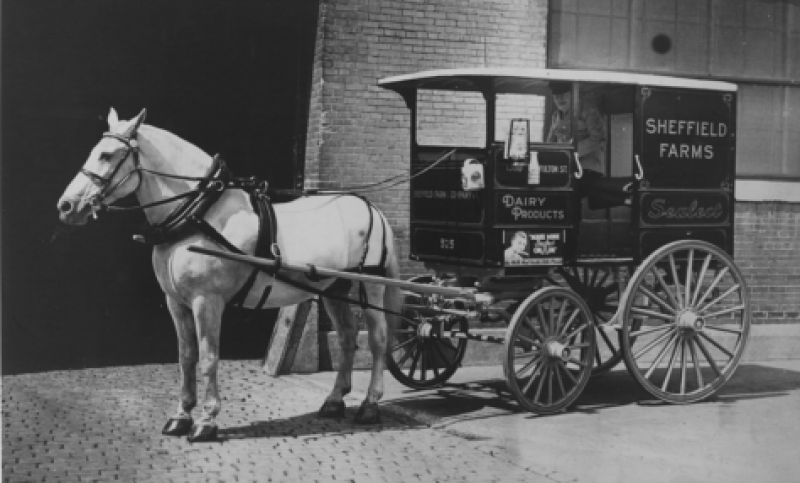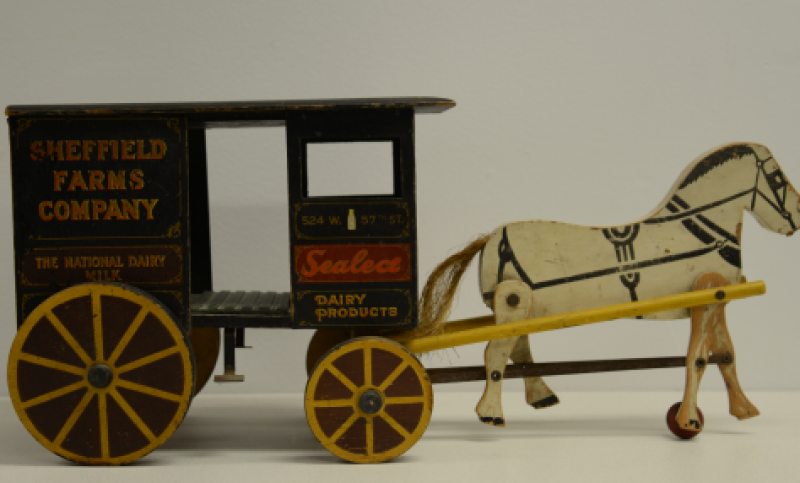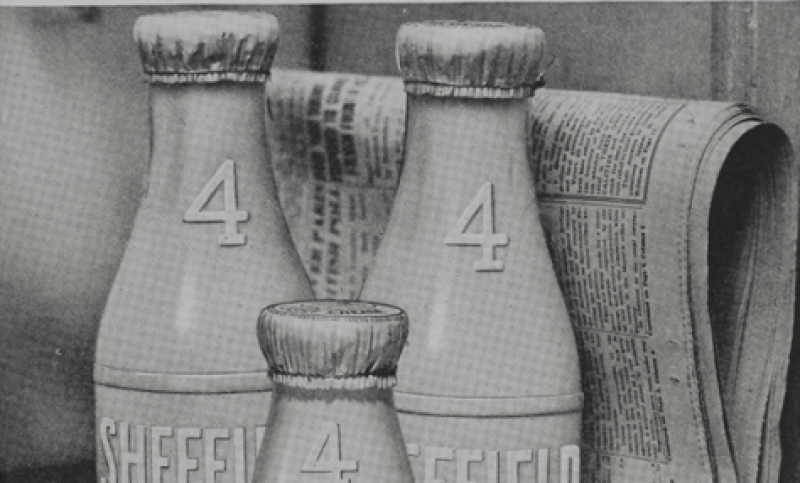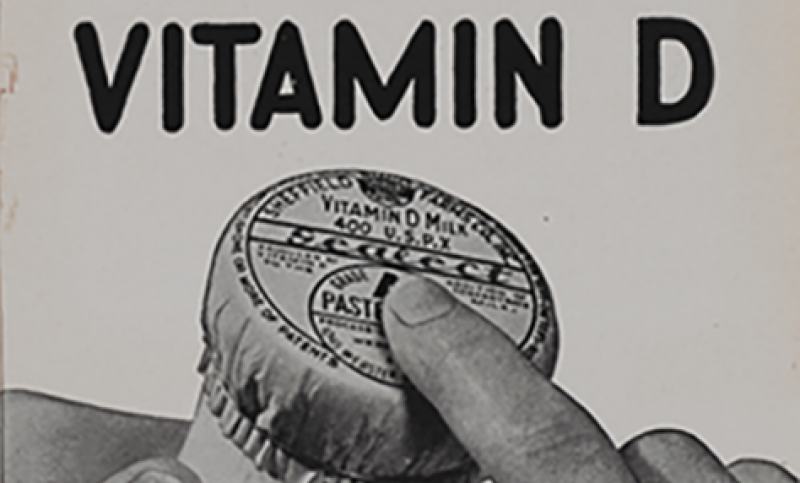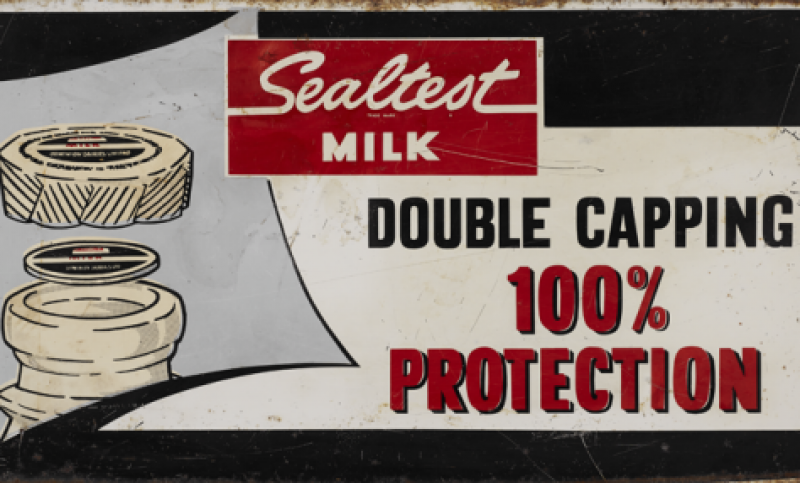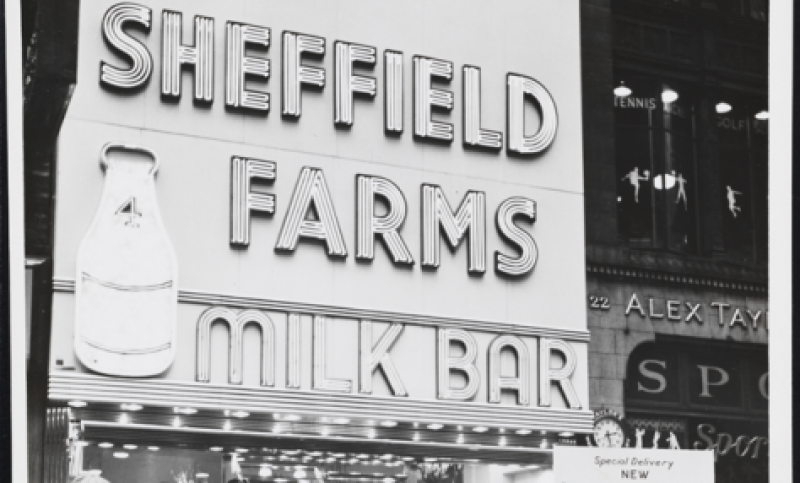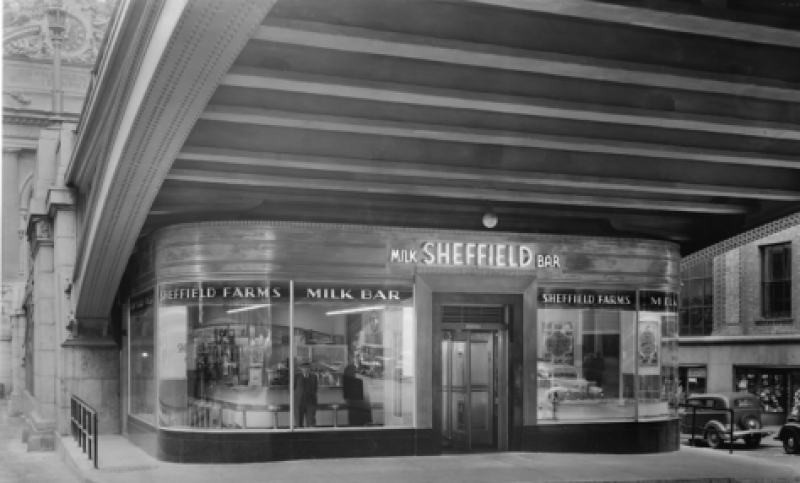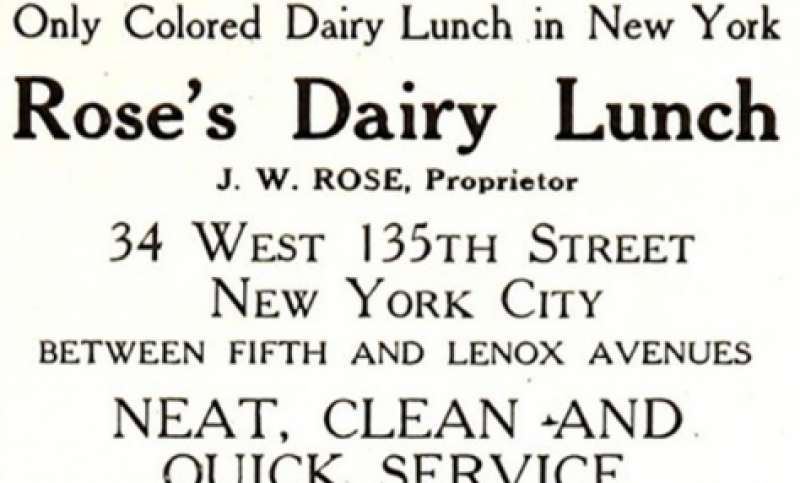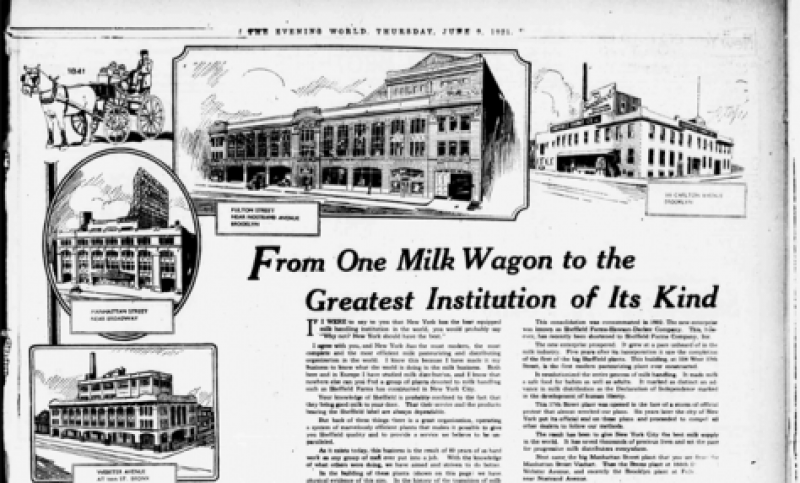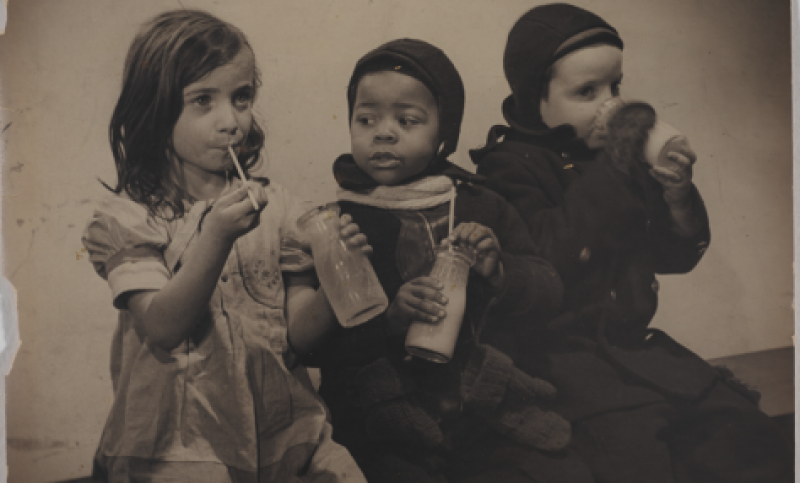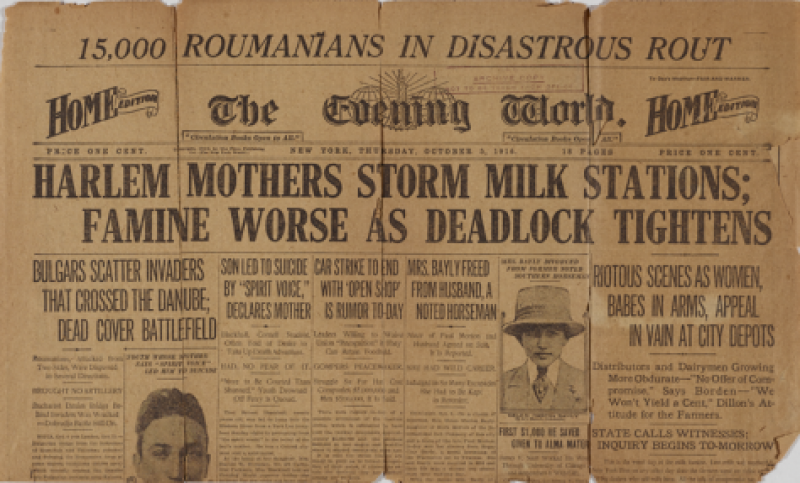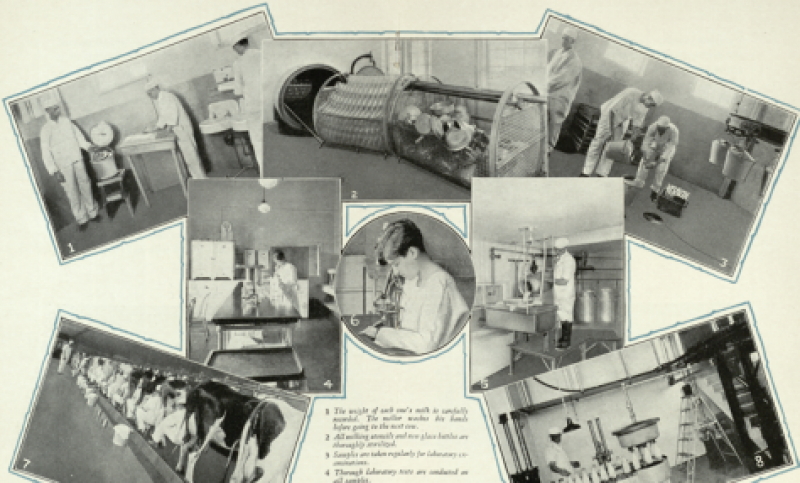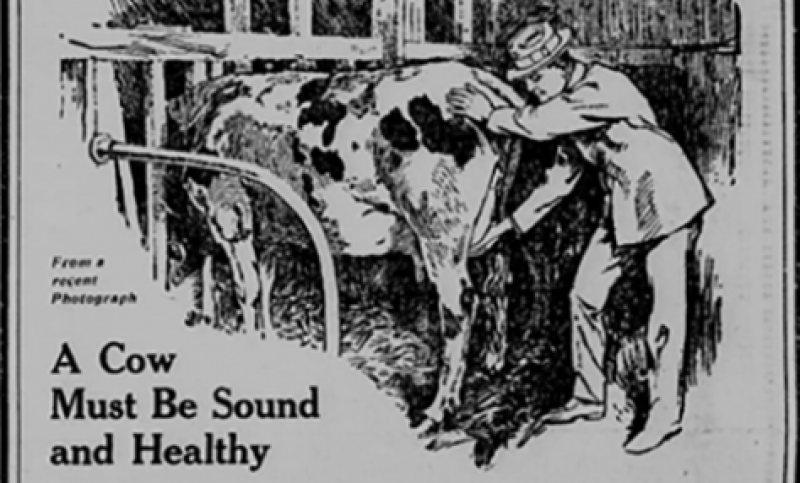
Sheffield Farms
By the early twentieth century Sheffield Farms was one of the largest dairy companies in the world. But its founder had begun modestly in 1841, making daily deliveries from his farm in the Bronx with a single cart and a few milk containers. The company’s first innovation was the invention of an enclosed milk wagon designed to keep dust out of the milk containers. Eventually four separate dairy concerns combined to form the Sheffield Farms Company – the number “4” was emblazoned on every bottle they sold – which continued operating into the 1950s, before eventually being incorporated into Kraft Foods.
Sheffield Farms and other dairy companies built a cluster of processing and transport facilities near the 130th street rail station, where milk could be bottled and prepared for delivery throughout upper Manhattan. Sheffield Farms, Borden’s, and the United States Dairy Products Company were known as the “Big Three.” Together they controlled more than 60 percent of the city’s business. By 1916, Sheffield Farms’ share amounted to 20 percent of all milk sold in the city.
The dairy business in this period was often volatile and controversial. Women and mothers in Harlem took their concerns over high prices directly to the streets on multiple occasions, picketing Sheffield Farms and other companies to demand affordable milk for their children. Dairy workers and delivery-wagon drivers engaged in frequent and sometimes violent strikes to ensure a fair wage and revenue share. Leading a highly visible industry in a predominantly African-American neighborhood, Sheffield Farms executives understood the value of community friendship. The company hired a black foreman in the 1930s, despite the opposition of some white employees.
